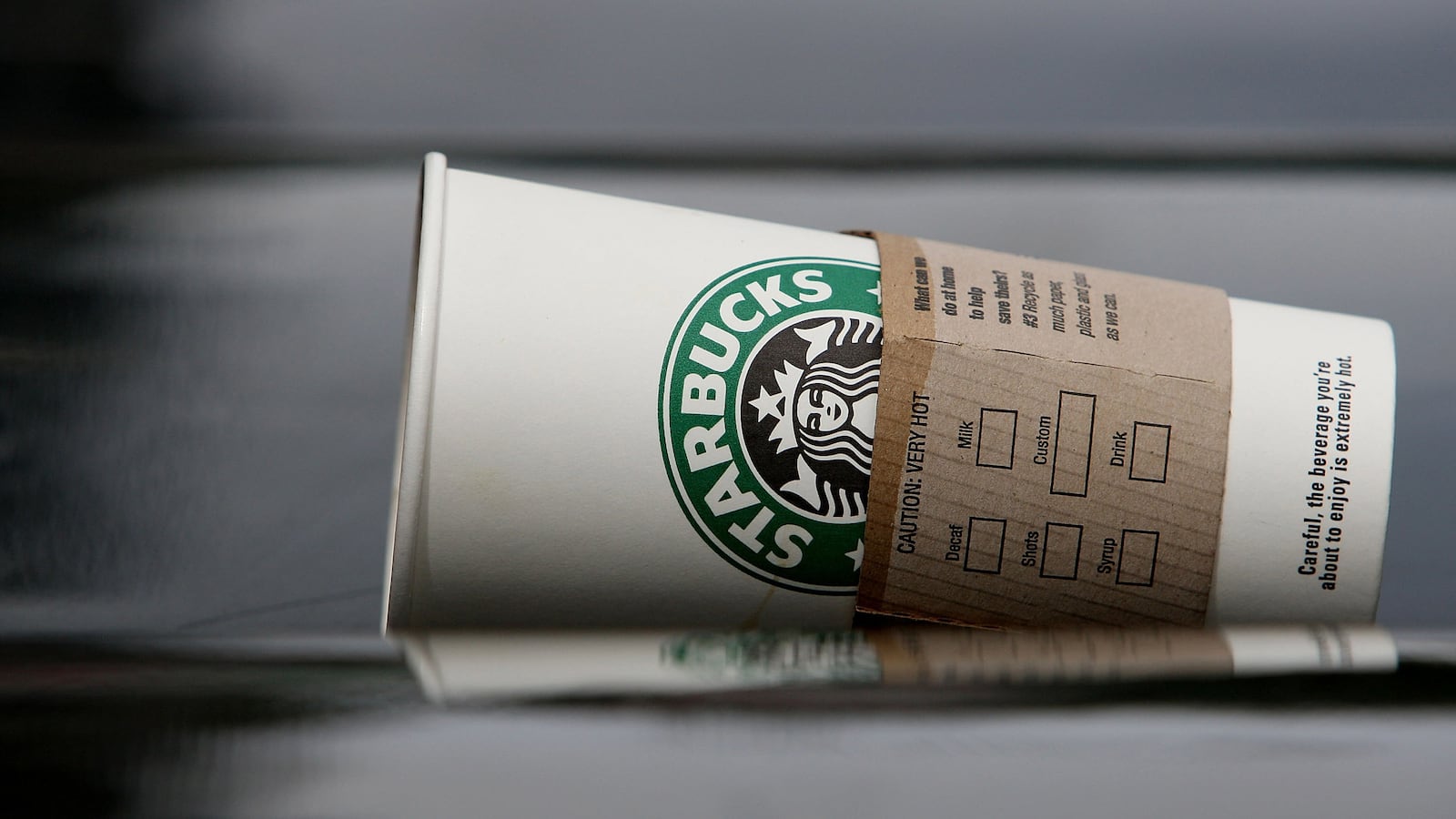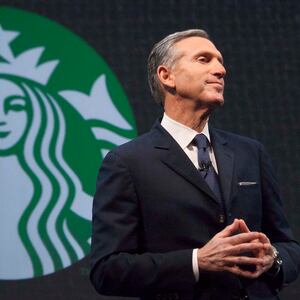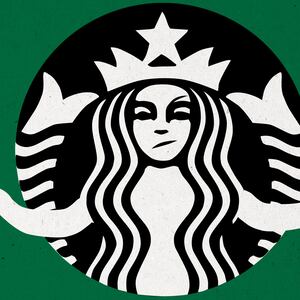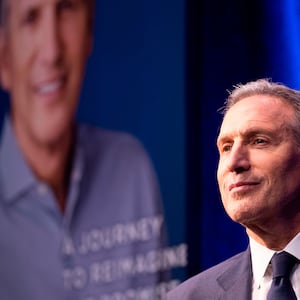Trouble is once again brewing for Starbucks, the global coffee empire that Seattle billionaire Howard Schultz—who recently flirted with running for president before backing off—spent three decades building into a highly-caffeinated behemoth.
On Tuesday, the iconic company—which claims more than $22 billion in annual revenue and more than 27,500 outlets in nearly 80 countries—was slapped with two lawsuits alleging that thousands of customers who patronize Starbucks’ 100-odd Manhattan stores have been exposed to a potentially lethal pesticide.
The lawsuits represent yet another public relations challenge for a company that has aggressively promoted, under Schultz’s leadership, a socially conscious, environmentally-friendly corporate image. In April 2018, Starbucks suffered a PR catastrophe when the white manager of a Philadelphia store called the cops on two African-American men who were simply waiting there quietly for a business meeting, resulting in their arrest and temporary jailing.
Now, a class-action lawsuit filed by 10 Starbucks customers in New York Supreme Court claims that “Starbucks stores throughout Manhattan have for many years been permeated with a toxic pesticide called Dichlorvos (2,2-dichlorovinyl dimethyl phosphate or ‘DDVP’), which is highly poisonous and completely unfit for use in proximity to food, beverages and people.
“Starbucks knows about the poisonous qualities of DDVP and knows that it has been used in Starbucks’ stores throughout Manhattan,” the lawsuit adds, “but has neither taken appropriate action to stop its use nor informed customers about the dangerous conditions to which they have been unwittingly being exposed.”
The lawsuit continues: “DDVP is an active ingredient emitted into the air by products called ‘No-Pest Strips,’ which are only intended to be used in unoccupied structures to rid such structures of vermin, bugs and insects. However, they are explicitly not to be used anywhere human beings are present, and especially in situations where the pesticide could come into contact with food and/or drinks. The label on these products clearly warns: ‘Do not use in the food/feed areas of food/feed processing or food/feed manufacturing or food/feed service establishments,’ and ‘Do not use in kitchens, restaurants or areas where food is prepared or served.’”
The federal government’s Centers for Disease Control and Prevention says prolonged exposure to DDVP—according to the lawsuit—can cause “loss of bladder control, muscle tremors, labored breathing, nausea, anxiety, diarrhea, muscle weakness, convulsions and paralysis, and that more severe exposure can even result in coma, inability to breathe and death.”
In an email to The Daily Beast, a Starbucks spokesperson dismissed the class-action suit and a second lawsuit filed in federal court by a fired Starbucks store manager and two of the coffee company’s extermination contractors—who claim Starbucks executives retaliated after they repeatedly warned of the pesticide dangers—as a bogus attempt to shake the company down.
“The lawsuits filed by the plaintiffs and their attorneys lack merit and are an attempt to incite public fear for their own financial gain,” the Starbucks spokesperson emailed. “We go to great lengths to ensure the safety of our partners [the Starbucks term for ‘employees’] and customers, and we are confident they have not been put at risk. Starbucks takes the concerns of its partners very seriously and does not take action or retaliate against partners who express them.”
The federal lawsuit claims that “Starbucks stores located throughout Manhattan…continuously failed to take necessary or adequate measures to ensure their cleanliness and instead recklessly hid hazardous pesticides throughout their stores, including in close proximity to food and food preparation areas…
“Moreover, this dangerous misconduct occurred systematically and with the apparent knowledge and approval of Starbucks Corporate Leadership—despite repeated warnings that such conduct was dangerous and unlawful,” the federal lawsuit asserts.
Contrary to the allegations in the two lawsuits, however, a Starbucks insider claimed that the No-Pest Strips were “immediately removed” from the Manhattan stores on orders from management “upon hearing reports that employees had used a product that violated company guidelines.”
No dates for the removal were provided, however, and attorneys for the plaintiffs speculated to The Daily Beast that Starbucks’ management ordered that the strips be gotten rid of only over the past month when the litigation was being organized.
The Starbucks spokesperson, meanwhile, said outside experts working for the company had declared that the No-Pest Strips had not posed a health hazard.
“I can confirm that we consulted with experts who concluded that based on how the strips were used in stores, employees and customers were not exposed to health risk,” the spokesperson emailed. Asked for the names and credentials of these experts, the spokesperson said: “Due to the impending litigation, I unfortunately cannot share further details right now.”
Plaintiffs’ attorney Ariel Graff, who represents fired Starbucks store manager Rafael Fox (who claims he was wrongfully terminated after complaining repeatedly about the alleged health hazards) and pesticide control experts Paul D’Auria and Jill Shwiner, emailed The Daily Beast that his clients “reported the dangers directly on more than a dozen different occasions, in writing, to the managers responsible for Manhattan stores who could have easily ended the practice (but chose not to).”
Graff added: “If Starbucks is claiming to have anonymous internal experts who are secretly ‘authorizing’ it to use what are indisputably hazardous pesticides in an illegal manner in virtually all of its Manhattan stores for a period of years—that’s something the public ought to know because its utterly outrageous.”
“I’m proud to represent my clients for insisting that this can’t disappear into the shadows at the expense of untold tens of thousands of unsuspecting customers, workers, and visitors who never agreed to expose themselves to an invisible poison gas when they step inside for a cup of coffee,” Graff continued.
Attorney David Gottlieb, who is representing the Starbucks customers in the class-action lawsuit, said that while the current litigation involves only the Manhattan stores, it could expand to New York’s four other boroughs and even Starbucks stores nationwide, depending on the results of the discovery process.







